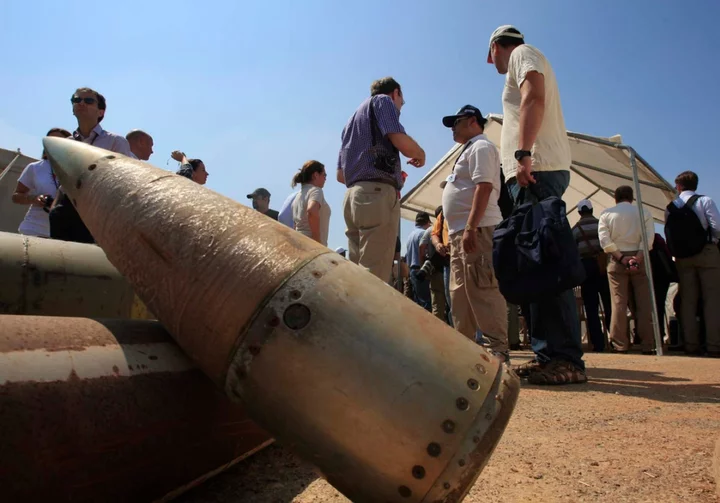
What are cluster munitions? The controversial weapons US will send to Ukraine
The United States has announced that it is sending cluster munitions to Ukraine to help its military push back Russian forces entrenched along the front lines. The administration of Joe Biden said that it will send thousands of them as part of a new military aid package worth $800m (£630m). The move will likely trigger outrage from some allies and humanitarian groups that have long opposed the use of cluster bombs. Proponents argue that both Russia and Ukraine have already been using the controversial weapon in Ukraine and that the munitions the US will provide have a reduced dud rate, meaning there will be far fewer unexploded rounds that can result in unintended civilian deaths. Ukraine has welcomed the decision, saying it needs “weapons, more weapons, and more weapons, including cluster munitions” if it is to defeat Russia. Mykhailo Podolyak, a senior adviser to the Ukrainian president, Volodymyr Zelensky, said the outcome of the war started by Moscow’s invasion depended on the volume of arms Kyiv receives. “In the great bloody war which has been ongoing for more than 16 months, and which will predetermine the future of the world … the number of weapons matters. So, weapons, more weapons, and more weapons, including cluster munitions,” he said on Friday. Here is a look at what cluster munitions are, why they are so controversial and where they have been used. What is a cluster munition? A cluster munition is a bomb that opens in the air and releases smaller “bomblets” across a wide area. The bomblets are designed to take out tanks and equipment, as well as troops, hitting multiple targets at the same time. The munitions are launched by the same artillery weapons that Western allies have already provided to Ukraine for the war — such as howitzers — and the type of cluster munition that the US is sending is based on a common 155 mm shell that is already widely in use across the battlefield. Why are they so controversial? In previous conflicts, cluster munitions have had a high dud rate, which meant that thousands of the smaller unexploded bomblets remained behind and killed and maimed people decades later. The US last used its cluster munitions in battle in Iraq in 2003, and decided not to continue using them as the conflict shifted to more urban environments with more dense civilian populations. On Thursday, Brigadier General Pat Ryder – the Pentagon press secretary – said the US Defense Department has “multiple variants” of the munitions and “the ones that we are considering providing would not include older variants with [unexploding] rates that are higher than 2.35 per cent”. A convention banning the use of cluster bombs has been joined by more than 120 countries, which agreed not to use, produce, transfer, or stockpile the weapons and to clear them after they've been used. The US, Russia and Ukraine haven't signed on. Why provide them now? For more than a year the US has dipped into its own stocks of traditional 155 howitzer munitions and sent more than two million rounds to Ukraine. Allies across the globe, including the UK, have provided hundreds of thousands more. A 155 mm round can strike targets 15 to 20 miles (24 to 32 kilometres) away, making them a munition of choice for Ukrainian ground troops trying to hit enemy targets from a distance. Ukrainian forces are burning through thousands of rounds a day battling the Russians. Yehor Cherniev, a member of the Ukrainian parliament, told reporters at a German Marshall Fund event in the US this spring that Kyiv would likely need to fire 7,000 to 9,000 rounds daily during the intensified counteroffensive. Providing that many puts substantial pressure on US and allied stocks. The cluster bomb can destroy more targets with fewer rounds, and since the US hasn’t used them in conflict since Iraq, it has large amounts of them in storage it can access quickly, said Ryan Brobst, a research analyst for the Foundation for Defense of Democracies. A March 2023 letter from top House and Senate Republicans to the Biden administration said the US may have as many as three million cluster munitions available for use, and urged the White House to send the munitions to alleviate pressure on American war supplies. “Cluster munitions are more effective than unitary artillery shells because they inflict damage over a wider area,” Mr Brobst said. “This is important for Ukraine as they try to clear heavily fortified Russian positions.” Tapping into the US stores of cluster munitions could address Ukraine’s shell shortage and alleviate pressure on the 155 mm stockpiles in the US and elsewhere, Mr Brobst said. Is using cluster bombs a war crime? The use of cluster bombs itself does not violate international law, but using them against civilians can be a violation. As in any strike, determining a war crime requires looking at whether the target was legitimate and if precautions were taken to avoid civilian casualties. “The part of international law where this starts playing [a role], though, is indiscriminate attacks targeting civilians,” Human Rights Watch’s associate arms director Mark Hiznay said. “So that's not necessarily related to the weapons, but the way the weapons are used.” Where have cluster bombs been used? The bombs have been deployed in many recent conflicts. The US initially considered cluster bombs an integral part of its arsenal during the invasion of Afghanistan that began in 2001, according to Human Rights Watch (HRW). The group estimated that the US-led coalition dropped more than 1,500 cluster bombs in Afghanistan during the first three years of the conflict. The Defense Department had been due to stop use of any cluster munitions with a rate of unexploded ordnance greater than 1 per cent, by 2019. But the Trump administration rolled back that policy, allowing commanders to approve the use of such munitions. Syrian government troops have often used cluster munitions — supplied by Russia — against opposition strongholds during that country’s civil war, frequently hitting civilian targets and infrastructure. And Israel used them in civilian areas in south Lebanon, including during the 1982 invasion. During the month-long 2006 war with Hezbollah, HRW and the United Nations accused Israel of firing as many as four million cluster munitions into Lebanon. That left unexploded ordnance that threatens Lebanese civilians to this day. The Saudi-led coalition in Yemen has been criticized for its use of cluster bombs in the war with the Iran-backed Houthi rebels that has ravaged the southern Arabian country. In 2017, Yemen was the second deadliest country for cluster munitions after Syria, according to the UN. Children have been killed or maimed long after the munitions originally fell, making it difficult to know the true toll. In the 1980s, the Russians made heavy use of cluster bombs during their 10-year invasion of Afghanistan. As a result of decades of war, the Afghan countryside remains one of the most heavily mined areas in the world. What has the White House said? The United States will provide Ukraine with cluster-style artillery rounds for use on their own territory to repel Russian invading forces, the White House has said. National Security Adviser Jake Sullivan told reporters on Friday that Kyiv has “provided written assurances” that it would use the controversial weapons “in a very careful way that is aimed at minimising any risk to civilians”. He said the Defence Department would provide further details on the next arms package that will be sent to Ukraine, but he pointed out that Kyiv’s forces are “firing thousands of rounds a day to defend against Russian efforts to advance and also to support its own efforts to retake its sovereign territory”. The national security adviser suggested the decision to provide Ukraine with cluster weapons already in US stocks was necessary to keep up a steady flow of arms for Kyiv’s defence. “We have provided Ukraine with a historic amount of unitary artillery rounds and we are ramping up domestic production of these rounds. We’ve already seen substantial increases in production, but this process will continue to take time, and it will be critical to provide Ukraine with a bridge of supplies. While our domestic production is ramped up,” he said. “We will not leave Ukraine defenceless at any point in this conflict period.” Mr Sullivan noted that Russia has been using their own version of cluster munitions, which are antipersonnel weapons that make use of small “bomblets” to maximise their effectiveness against massed troops, and pointed out that the Russian weapons have a high rate of failure which leaves the battlefield littered with unexploded ordinance. He added that the US-made shells that will be provisioned to Kyiv’s defence forces have a much lower failure rate, and said Ukraine’s government has committed to post-war de-mining that would prevent civilians from being harmed by unexploded submunitions, which in past conflict zones have lingered for years. While a 2008 treaty, the Oslo Convention on Cluster Munitions, has been signed by more than 100 nations which have agreed to ban the use of such weapons, neither the US, Russia, nor Ukraine are signatories to the treaty. What has the Pentagon said? Speaking at a Defence Department briefing on Friday, Undersecretary of Defence for Policy Colin Kohl said the next US arms package to Ukraine would include the Dual-Purpose Improved Conventional Munition, which is used both for anti-armour and anti-personnel purposes. “With this announcement, we will be able to provide Ukraine with hundreds of thousands of additional artillery ammunition immediately. This decision will ensure we can sustain our support for Ukraine by bringing us to a point where we are producing sufficient artillery ammunition on a monthly basis across the coalition,” he said. Both Mr Kahl and Mr Sullivan also contrasted Russia’s use of the weapons on Ukraine’s territory with Ukraine’s desire to use them to defend their own land. “When we look at what Ukraine would be doing with these weapons, as opposed to what Russia is doing with these weapons, we see a substantial difference. It doesn’t make it an easy decision, and I’m not going to stand up here and say it is easy,” Mr Sullivan said, adding that the US had deferred a decision on providing cluster munitions for quite some time because it “required a real hard look at the potential harm to civilians”. “When we put all of that together, there was a unanimous recommendation from the national security team, and President Biden ultimately decided — in consultation with allies and partners and in consultation with members of Congress — to move forward on this step,” he said. Mr Kahl admitted that the US has criticised Russia’s use of cluster munitions because they have been doing so indiscriminately, and with older, less reliable systems that cause more civilian casualties. But he said Kyiv has assured the US that they will not use the DPICMs rounds in civilian areas or urban environments, and they have also committed to recording where they are used to aid in cleanup efforts post-war. The Associated Press contributed to this report Read More Ukraine-Russia war – live: US to send cluster bombs to Kyiv for first time Biden to ‘compare notes’ with Sunak on Ukrainian fightback The ‘chip wars’ between the US and China will have far-reaching technological and military repercussions The Body in the Woods | An Independent TV Original Documentary The harrowing discovery at centre of The Independent’s new documentary
2023-07-08 04:45
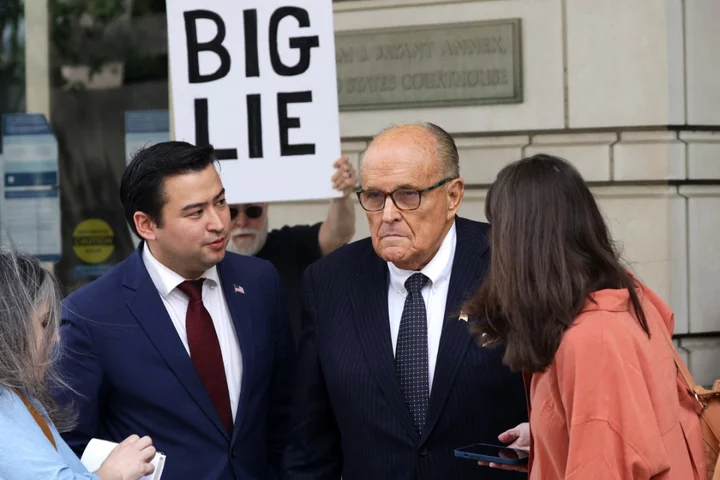
Ethics board recommends Rudy Giuliani be disbarred for ‘destructive’ attempts to undermine 2020 results
A disciplinary committee in Washington DC has recommended Rudy Giuliani be disbarred in the nation’s capital for his spurious efforts to overturn the results for the 2020 presidential election on behalf of Donald Trump. Mr Giuliani had “no factual basis, and consequently no legitimate legal grounds” to challenge the results of the election in states that Mr Trump lost, while his “frivolous” pursuit to undermine the outcome and disenfranchise voters “seriously undermined the administration of justice,” according to the committee’s report. “He claimed massive election fraud but had no evidence of it,” the committee wrote on 7 July. “By prosecuting that destructive case Mr Giuliani, a sworn officer of the Court, forfeited his right to practice law. He should be disbarred.” The preliminary report from a committee with the DC Bar Association, which follows a misconduct hearing in December, is not final; his case will be considered by DC’s Board on Professional Responsibility and by the DC court of appeals. Mr Giuliani – who repeatedly and baselessly asserted that the election was fraudulent while pushing lawsuits to subvert the outcome in states that Mr Trump lost – is facing other professional sanctions, investigations and lawsuits tied to his efforts to overturn election results and sow doubt about the outcome of the 2020 election. The latest report specifically criticises Mr Giuliani’s “calculated” attempts to undermine trust in US elections, after he falsely stated in a federal court in Pennsylvania that fraudulent election results in the state would overturn Joe Biden’s victory. “Mr Giuliani has not acknowledged or accepted responsibility for his misconduct,” the committee wrote. “To the contrary, he has declared his indignation ... over being subjected to the disciplinary process. ... We are convinced that a sanction must be enhanced to ensure that it adequately deters both [Mr Giuliani] and other attorneys from acting similarly in the future.” The committee, composed of two attorneys and a member of the public, which unanimously recommended his disbarment, considered “in mitigation” Mr Giuliani’s previous work – including his terms as mayor of New York City, including during the chaos of the September 11 attacks and their aftermath. “But all of that happened long ago,” the report stated. “The misconduct here sadly transcends all his past accomplishments. It was unparalleled in its destructive purpose and effect. He sought to disrupt a presidential election and persists in his refusal to acknowledge the wrong he has done,” the committee added. “For these reasons, we unanimously recommend that Mr Giuliani be disbarred.” Ted Goodman, a spokesperson for Mr Giuliani, said in a statement shared with The Independent that the committee is “persecuting” the former mayor “on behalf of the permanent corrupt regime in Washington.” “This is also part of a larger effort to deny President Trump effective counsel by persecuting Mayor Giuliani – objectively one of the most effective prosecutors in American history,” he added. “I call on rank-and-file members of the DC Bar Association to speak up in defense of Mayor Giuliani and against this great injustice.” Mr Giuliani’s law license was suspended in New York in 2021 for “demonstrably false and misleading statements” surrounding the election. Voting machine company Dominion Voting Systems also filed defamation lawsuits against Mr Giuliani as well as Trump-allied attorney Sidney Powell, conspiracy theorist Mike Lindell and Fox News for amplifying false claims that the company argues have severely damaged its reputation, compromised integrity in US elections and fuelled harassment and death threats against its employees. Mr Giuliani also is wrapped up in a lawsuit filed by Georgia election workers who have accused right-wing conspiracy theorists of fuelling threats against them. The former mayor of New York City also could face federal charges connected to a sprawling investigation under US Department of Justice special counsel Jack Smith into the dubious and far-reaching efforts to undermine election results leading up to the attack on the US Capitol on January 6. Mr Giuliani reportedly participated in a voluntary interview with prosecutors working under the supervision of Mr Smith, a meeting that Mr Goodman told The Independent last month “was entirely voluntary and conducted in a professional manner,” though he declined to elaborate on the current status of Mr Giuliani’s discussions with the Justice Department. Read More Rudy Giuliani grilled by prosecutors about 'shouting match' in fight to overturn election Ex-Trump aide reportedly joins Giuliani in cooperating with special counsel in 2020 election probe The Trumpworld attorneys facing professional sanctions over spurious lawsuits and election lies
2023-07-08 03:57
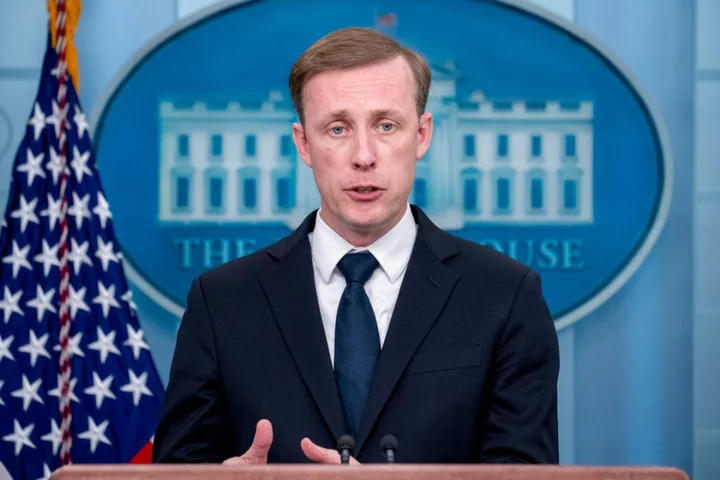
US will provide Ukraine with cluster munitions, White House says
The United States will provide Ukraine with cluster-style artillery rounds for use on their own territory to repel Russian invading forces, the White House has said. National Security Advisor Jake Sullivan told reporters on Friday that Kyiv has “provided written assurances” that it would use the controversial weapons “in a very careful way that is aimed at minimising any risk to civilians”. He said the Defence Department would provide further details on the next arms package that will be sent to Ukraine, but he pointed out that Kyiv’s forces are “firing thousands of rounds a day to defend against Russian efforts to advance and also to support its own efforts to retake its sovereign territory”. The national security adviser suggested the decision to provide Ukraine with cluster weapons already in US stocks was necessary to keep up a steady flow of arms for Kyiv’s defence. “We have provided Ukraine with a historic amount of unitary artillery rounds and we are ramping up domestic production of these rounds. We’ve already seen substantial increases in production, but this process will continue to take time, and it will be critical to provide Ukraine with a bridge of supplies. While our domestic production is ramped up,” he said. “We will not leave Ukraine defenceless at any point in this conflict period”. Mr Sullivan noted that Russia has been using their own version of cluster munitions, which are antipersonnel weapons that make use of small “bomblets” to maximise their effectiveness against massed troops, and pointed out that the Russian weapons have a high rate of failure which leaves the battlefield littered with unexploded ordinance. He added that the US-made shells that will be provisioned to Kyiv’s defence forces have a much lower failure rate, and said Ukraine’s government has committed to post-war de-mining that would prevent civilians from being harmed by unexploded submunitions, which in past conflict zones have lingered for years. While a 2008 treaty, the Oslo Convention on Cluster Munitions, has been signed by more than 100 nations which have agreed to ban the use of such weapons, neither the US, Russia or Ukraine are signatories to the treaty. He also contrasted Russia’s use of the weapons on Ukraine’s territory with Ukraine’s desire to use them to defend their own land. “When we look at what Ukraine would be doing with these weapons, as opposed to what Russia is doing with these weapons, we see a substantial difference. It doesn’t make it an easy decision, and I’m not going to stand up here and say it is easy,” he said, adding that the US had deferred a decision on providing cluster munitions for quite some time because it “required a real hard look at the potential harm to civilians”. “When we put all of that together, there was a unanimous recommendation from the national security team, and President Biden ultimately decided — in consultation with allies and partners and in consultation with members of Congress — to move forward on this step,” he said. Read More The Body in the Woods | An Independent TV Original Documentary The harrowing discovery at centre of The Independent’s new documentary
2023-07-08 02:56
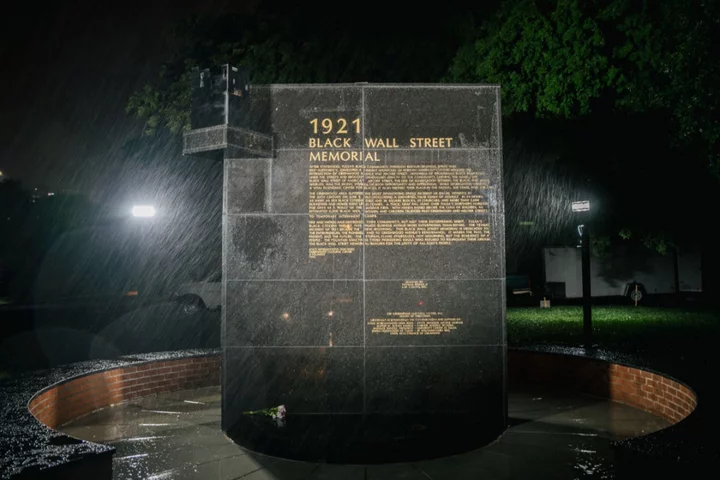
Oklahoma superintendent falsely claims Tulsa massacre wasn’t about race
A top Oklahoma education official prompted swift criticism on Thursday by falsely claiming the 1921 Tulsa race massacre wasn’t about race. Ryan Walters, who took office as superintendent of public instruction, mades the comments during a forum at the Norman Public Library on Thursday, after he was asked how accurately teaching about the infamous white supremacist massacre which killed as many as 300 Black people wouldn’t violate a state ban on teaching critical race theory. “I would never tell a kid that because of your race, because of the color of your skin, or your gender or anything like that, you are less of a person or are inherently racist,” Mr Walters said in response. “That doesn’t mean you don’t judge the actions of individuals. Oh, you can. Absolutely, historically, you should. ‘This was right. This was wrong. They did this for this reason.’ But to say it was inherent in that because of their skin is where I say that is critical race theory. You’re saying that race defines a person.” “Let’s not tie it to the skin colour and say the skin colour determined it,” he added. The Tulsa race massacre is considered one of the worst acts of white supremacist terror in US history. During the 1921 massacre, rumours about a young Black man’s encounter with a white woman prompted a mob of white vigilantes, in some cases armed and deputised by Tulsa officials, to raze the thriving Greenwood district, a bustling centre of Black business in the city. The violence killed as many as 300 Black people, injured more than 800, and left tens of thousands of people homeless, according to the Tulsa historical society. After the massacre concluded, nearly all residents of Greenwood were arrested en masse, and could only be released on the application of a white person. No one was ever prosecuted for the violence. The state official’s coments attracted swift condemnation. “No matter what anyone says or does, Tulsa will continue teaching a full, honest, and complete history of our city, state, country, and world,” Tulsa superintendent Deborah Gist wrote on Twitter. “After 100 years we have an Oklahoma elected official still fighting the Tulsa Race Massacre,” Oklahoma congressional candidate and former FBI agent Dennis Baker added on Twitter. “MAGA State Superintendent Ryan Walters believes the Tulsa Race Massacre wasn’t about race. The Klan hide behind a white robe – Walters proudly displays his red cap.” Many were incredulous that Mr Walters didn’t see the role of race in the mob violence. “I’m sure in his opinion, the Civil War and the Holocaust had nothing to do with race either,” state representative Monroe Nichols tweeted. “[Ryan Walters] is a notorious sympathizer of the darkest moments of history and all those who perpetuated them.” The Independent has contacted Mr Walters for comment. The Tulsa controversy isn’t the first time the education official has provoked controversy. Last month, he called on Oklahoma schools to promote Christianity and display the Ten Commandments to encourage “Western heritage.” Read More Tulsa race massacre survivors are fighting for justice 102 years after catastrophic attack Scientist: Progress in identifying Tulsa massacre victims Indiana school board candidate under fire for saying “all nazis weren’t bad” Kansas attorney general sues to prevent transgender people from changing driver's licenses Toby Keith's shows at his Oklahoma music venue mark return to stage after revealing cancer diagnosis Viola Ford Fletcher, oldest living Tulsa Race Massacre victim, publishes memoir
2023-07-08 01:54
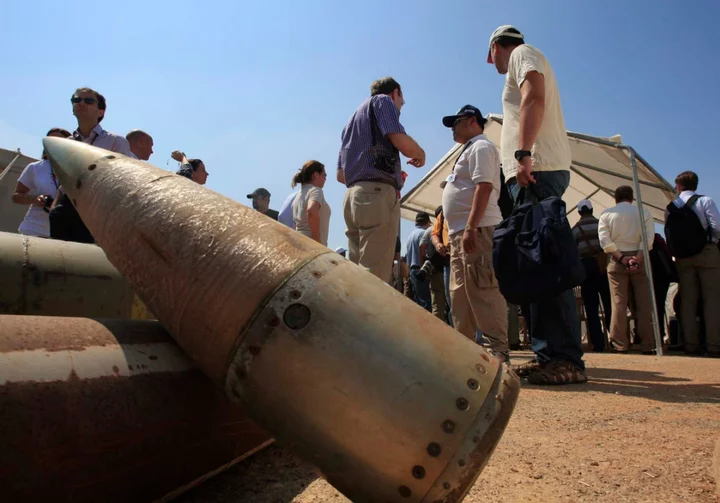
What are cluster bombs and why is it controversial for the US to send them to Ukraine?
The United States is expected to announce it is sending cluster munitions to Ukraine to help its military push back Russian forces entrenched along the front lines. The administration of Joe Biden is set to say that it will send thousands of them as part of a new military aid package worth $800m (£630m). The move will likely trigger outrage from some allies and humanitarian groups that have long opposed the use of cluster bombs. Proponents argue that both Russia and Ukraine have already been using the controversial weapon in Ukraine and that the munitions the US will provide have a reduced dud rate, meaning there will be far fewer unexploded rounds that can result in unintended civilian deaths. Here is a look at what cluster munitions are, where they have been used and why the U.S. plans to provide them to Ukraine now. What is a cluster munition? A cluster munition is a bomb that opens in the air and releases smaller "bomblets" across a wide area. The bomblets are designed to take out tanks and equipment, as well as troops, hitting multiple targets at the same time. The munitions are launched by the same artillery weapons that Western allies have already provided to Ukraine for the war — such as howitzers — and the type of cluster munition that the US is planning to send is based on a common 155 mm shell that is already widely in use across the battlefield. Why are they so controversial? In previous conflicts, cluster munitions have had a high dud rate, which meant that thousands of the smaller unexploded bomblets remained behind and killed and maimed people decades later. The US last used its cluster munitions in battle in Iraq in 2003, and decided not to continue using them as the conflict shifted to more urban environments with more dense civilian populations. On Thursday, Brigadier General Pat Ryder – the Pentagon press secretary – said the US Defense Department has "multiple variants" of the munitions and "the ones that we are considering providing would not include older variants with [unexploding] rates that are higher than 2.35 per cent." A convention banning the use of cluster bombs has been joined by more than 120 countries, which agreed not to use, produce, transfer or stockpile the weapons and to clear them after they've been used. The US, Russia and Ukraine haven't signed on. Why provide them now? For more than a year the US has dipped into its own stocks of traditional 155 howitzer munitions and sent more than two million rounds to Ukraine. Allies across the globe, including the UK, have provided hundreds of thousands more. A 155 mm round can strike targets 15 to 20 miles (24 to 32 kilometres) away, making them a munition of choice for Ukrainian ground troops trying to hit enemy targets from a distance. Ukrainian forces are burning through thousands of the rounds a day battling the Russians. Yehor Cherniev, a member of Ukraine's parliament, told reporters at a German Marshall Fund event in the US this spring that Kyiv would likely need to fire 7,000 to 9,000 of the rounds daily in intensified counteroffensive fighting. Providing that many puts substantial pressure on U.S. and allied stocks. The cluster bomb can destroy more targets with fewer rounds, and since the US hasn't used them in conflict since Iraq, it has large amounts of them in storage it can access quickly, said Ryan Brobst, a research analyst for the Foundation for Defense of Democracies. A March 2023 letter from top House and Senate Republicans to the Biden administration said the US may have as many as three million cluster munitions available for use, and urged the White House to send the munitions to alleviate pressure on American war supplies. "Cluster munitions are more effective than unitary artillery shells because they inflict damage over a wider area," Mr Brobst said. "This is important for Ukraine as they try to clear heavily fortified Russian positions." Tapping into the US stores of cluster munitions could address Ukraine's shell shortage and alleviate pressure on the 155 mm stockpiles in the US and elsewhere, Mr Brobst said. Is using cluster bombs a war crime? Use of cluster bombs itself does not violate international law, but using them against civilians can be a violation. As in any strike, determining a war crime requires looking at whether the target was legitimate and if precautions were taken to avoid civilian casualties. "The part of international law where this starts playing [a role], though, is indiscriminate attacks targeting civilians," Human Rights Watch's associate arms director Mark Hiznay said. "So that's not necessarily related to the weapons, but the way the weapons are used." Where have cluster bombs been used? The bombs have been deployed in many recent conflicts. The US initially considered cluster bombs an integral part of its arsenal during the invasion of Afghanistan that began in 2001, according to Human Rights Watch (HRW). The group estimated that the US-led coalition dropped more than 1,500 cluster bombs in Afghanistan during the first three years of the conflict. The Defense Department had been due to stop use of any cluster munitions with a rate of unexploded ordnance greater than 1 per cent, by 2019. But the Trump administration rolled back that policy, allowing commanders to approve use of such munitions. Syrian government troops have often used cluster munitions — supplied by Russia — against opposition strongholds during that country's civil war, frequently hitting civilian targets and infrastructure. And Israel used them in civilian areas in south Lebanon, including during the 1982 invasion. During the month-long 2006 war with Hezbollah, HRW and the United Nations accused Israel of firing as many as four million cluster munitions into Lebanon. That left unexploded ordnance that threatens Lebanese civilians to this day. The Saudi-led coalition in Yemen has been criticized for its use of cluster bombs in the war with the Iran-backed Houthi rebels that has ravaged the southern Arabian country. In 2017, Yemen was the second deadliest country for cluster munitions after Syria, according to the UN. Children have been killed or maimed long after the munitions originally fell, making it difficult to know the true toll. In the 1980s, the Russians made heavy use of cluster bombs during their 10-year invasion of Afghanistan. As a result of decades of war, the Afghan countryside remains one of the most heavily mined countries in the world. Associated Press Read More The Body in the Woods | An Independent TV Original Documentary The harrowing discovery at centre of The Independent’s new documentary Biden is considering sending controversial cluster munitions to help Ukraine Muslims across Pakistan hold anti-Sweden rallies to denounce burning of Islam's holy book Ukraine claims new gains made against Russia’s troops near Bakhmut - live
2023-07-07 19:21

'This country isn't just white': A diverse U.S. squad heads to women's World Cup
By Amy Tennery NEW YORK A new era is dawning for the U.S. women's national soccer team, as
2023-07-07 17:22

Trump’s bizarre 2020 Oval Office meeting ‘focus of questioning’ for special counsel – live updates
The team investigating Donald Trump led by special counsel Jack Smith has indicated their ongoing attention is on a 2020 Oval Office meeting during the last days of his administration, it has been reported. According to CNN, investigators have questioned multiple witnesses about the bizarre Oval Office meeting which involved former Trump lawyer Sidney Powell, former national security adviser Michael Flynn, and former Overstock CEO Patrick Byrne. The investigation has been ongoing for several months. Nearly a month after Donald Trump was arraigned on the 38-count federal indictment that he and his longtime aide Walt Nauta are facing for allegedly unlawfully retaining national defence information and obstructing justice, the ex-president’s co-defendant has pleaded not guilty to charges of having assisted Mr Trump in concealing classified documents from the government. Mr Nauta, a retired Navy chief petty officer who served as Mr Trump’s White House valet before following him to Florida after the end of the Trump administration, is on his own charged with a single count of making a false statement to federal investigators. Surveillance footage from the Mar-a-Lago estate, allegedly showed that dozens of boxes were moved in the days before investigators from the Department of Justice visited to retrieve records. Read More Special counsel zeroing in on ‘unhinged’ Oval Office meeting when Trump hosted conspiracy theorists – report DeSantis campaign video crossed a line for gay right-wing pundits despite governor’s record on LGBT+ rights Turnout spiked among younger voters in the last three elections. This is what’s needed for that to be repeated in 2024 Prosecutors knew Trump was hiding more documents thanks to Mar-a-Lago CCTV tapes
2023-07-07 15:20

Taylor Swift: What Asian fans did for her concert tickets
Furious competition for Eras Tour seats will fulfil or crush fans' Wildest Dreams.
2023-07-07 13:58
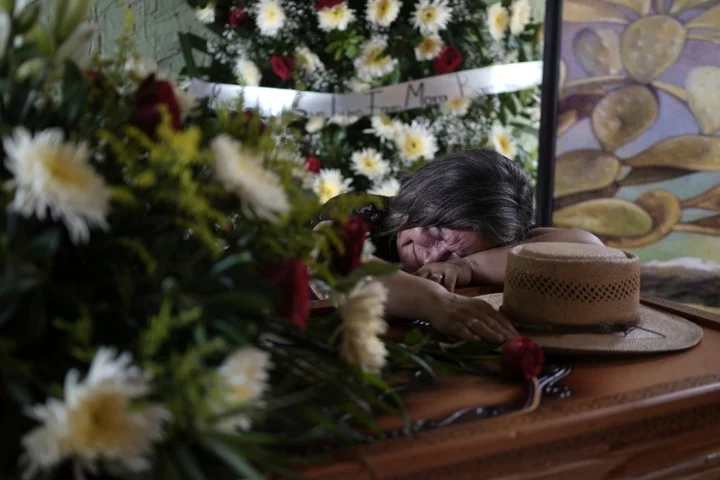
AP Week in Pictures: Latin America and Caribbean
June 30 – July 6, 2023 Friends and family attended the funeral of armed civilian defense leader Hipolito Mora and two of his bodyguards in La Ruana, Mexico, and former Brazilian President Jair Bolsonaro, referred to by some as the Trump of South America, was barred from running for office again until 2030 after a panel of judges concluded that he abused his power and cast unfounded doubts on the country’s electronic voting system. This gallery highlights some of the most compelling images made or published in the past week by Associated Press photographers in Latin America and the Caribbean. The selection was curated by photo editor Anita Baca in Mexico City. Follow AP visual journalism: Instagram: https://www.instagram.com/apnews AP Images on Twitter: http://twitter.com/AP_Images AP Images blog: http://apimagesblog.com Read More Ukraine war’s heaviest fight rages in east - follow live Charity boss speaks out over ‘traumatic’ encounter with royal aide
2023-07-07 12:46
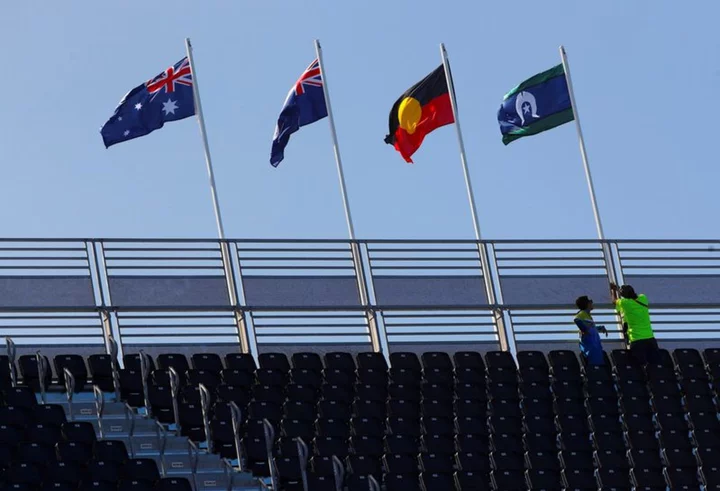
Soccer-Australia, NZ cleared to fly Indigenous flags at Women's World Cup
MELBOURNE Global soccer governing body FIFA has agreed to requests from Australia and New Zealand to display Indigenous
2023-07-07 11:16
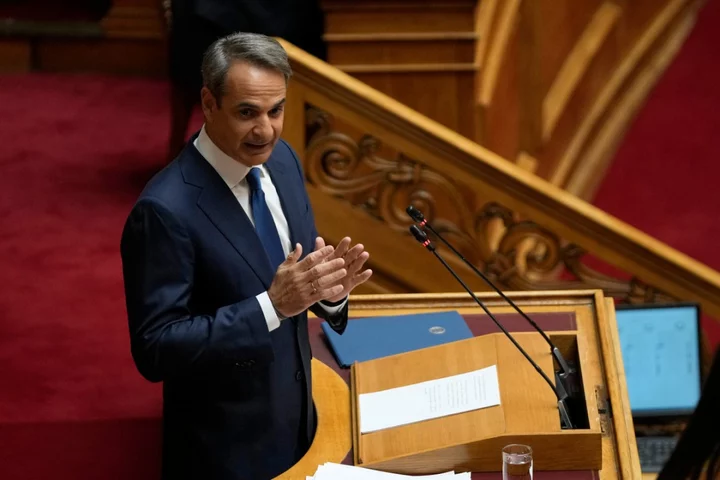
Greece pledges more high defense spending, seeks F-35 fleet
Greece’s conservative government promised late Thursday to continue a multi-billion euro defense modernization program during its second term in office, setting its sights on acquiring F-35 fighter jets in five years. “Our priority is to safeguard the country,” Prime Minister Kyriakos Mitsotakis told parliament at the start of a debate to approve a new government after his conservative New Democracy party won a general election last month. Athens is acquiring 24 advanced French-built Rafale jets, and upgrading 58 F-16 fighters from its aging fleet. It wants to add 20 F-35s with an option to buy as many as 28 more at a later date – requests that still require final approval from the Unites States. Greece has long-standing disputes with neighbor and fellow-NATO member Turkey and is modernizing its military after emerging from a severe financial crisis in 2018. It currently has the largest defense budget in the alliance relative to the size of its economy, at 3.54% of gross domestic product in 2022, according to NATO’s annual report published in March. It is one of seven members that spends above the 2% NATO guideline, along with the United States, Lithuania, Poland, the United Kingdom, Estonia and Latvia. Mitsotakis said the high spending on defense would continue despite a welcome thaw in tension with Turkey in recent months. He is due to meet with Turkish President Recep Tayyip Erdogan next week on the sidelines of a NATO summit in Lithuania. Concluding a three-day debate, the Greek parliament will hold a vote of confidence Saturday, to back the new Mitsotakis government. Read More Ukraine war’s heaviest fight rages in east - follow live Charity boss speaks out over ‘traumatic’ encounter with royal aide
2023-07-07 07:49

Princeton doctoral student kidnapped in Iraq by Iran-backed militia
A Princeton doctoral student has been kidnapped in Iraq while doing field work in the country, according to Israel’s Prime Minister Benjamin Netanyahu on Wednesday. “Elizabeth Tsurkov is still alive and we hold Iraq responsible for her safety and well-being,” Mr Netanyahu wrote in a statement. Ms Tsurkov is an Israeli-Russian dual citizen, the Israeli prime minister wrote. She is also a fellow at the Washington DC-based think tank, New Lines Institute, and is a contributor to New Lines magazine. They wrote they hadn’t heard from her since 19 March, when she said she wanted to leave the Middle East and return to Princeton to write her dissertation. They added that just over a week after hearing from her, they “learned from our sources that a pro-Iranian militia had kidnapped her in Baghdad.” The writers underscored that Ms Tsurkov’s work “poses no threat to anyone.” The magazine also wrote that Ms Tsurkov “is an outspoken critic of all three of the major likely players involved in negotiating her release: Israel, Iran and Russia.” The group said that they reached out to US and foreign officials and will continue to do so. They urged the United States to get involved in her release, because despite the fact she is not a US citizen, she “is very much a part of America,” they wrote. “She works with a Washington think tank, writes for an American magazine and studies at Princeton University. She deserves America’s every effort to bring her to safety,” New Lines magazine writers said. Ms Tsurkov’s family also confirmed details of her disappearance in a statement. “She was kidnapped in the middle of Baghdad, and we see the Iraqi government as directly responsible for her safety,” the family’s statement said. “We ask for her immediate release from this unlawful detention.” Read More Missing two-year-old’s grandmother shares ‘mental torture’ after alleged kidnapper arrested Kremlin open to talks over potential prisoner swap involving detained WSJ reporter Evan Gershkovich Death of student, 20, outside club ‘senseless and avoidable’, court told
2023-07-07 03:58
You Might Like...

Jacksonville shooting: Father, 29, among three killed in racially-motivated attack

Obama, Clooney and Gates: 'We can end child marriage in a generation'
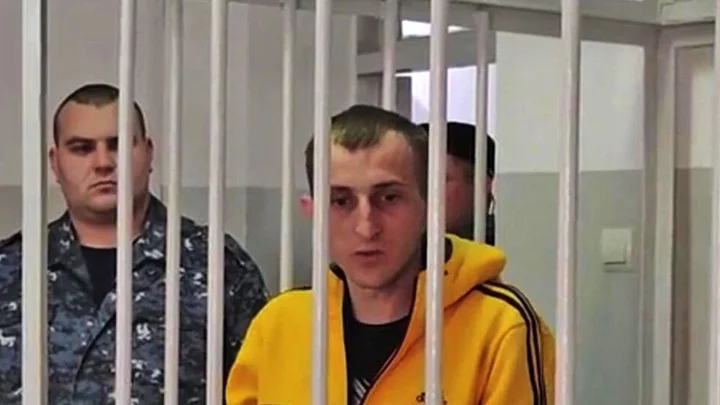
Russian convicts released to fight with Wagner accused of new crimes

Fifth suspect charged in Montgomery riverfront brawl after turning himself in
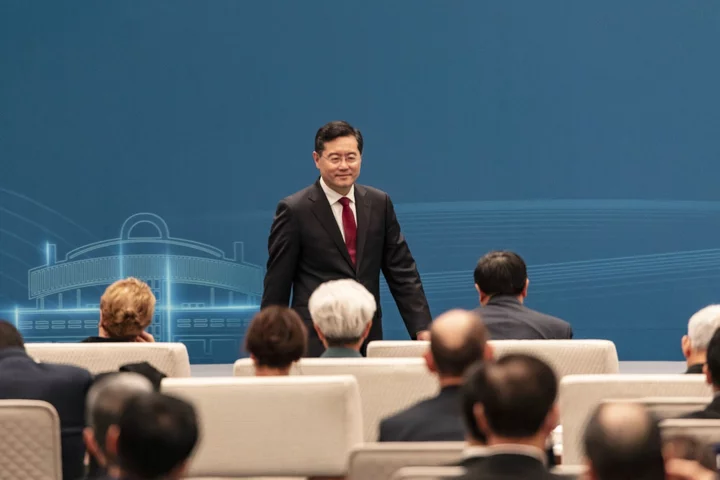
China Foreign Minister to Skip Asean Meeting, Extending Absence

White neighbour who fatally shot Black mother in row over children playing pleads not guilty to manslaughter
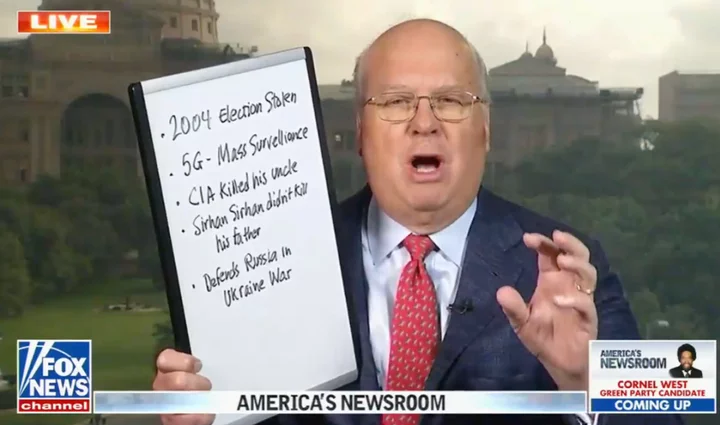
Karl Rove brings whiteboard to Fox News to explain that RFK Jr is a ‘nut’
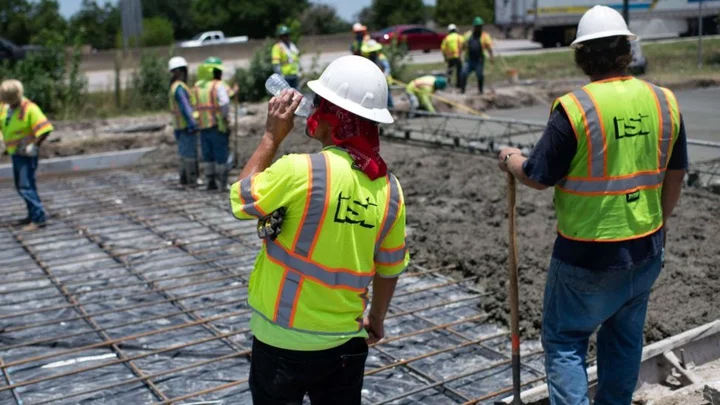
Thirsty and exhausted, Texans feel the heatwave
